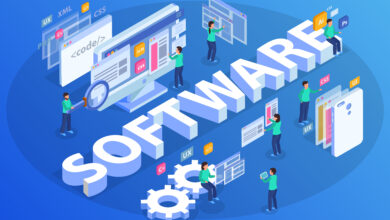The Comprehensive Guide to Stated Income Commercial Loans

In the ever-evolving world of commercial finance, securing funding can often feel like navigating a labyrinth. For many business owners, particularly those who are self-employed or operate small enterprises, the traditional loan application process can present numerous challenges. Enter stated income commercial loans, a financing solution that offers flexibility and accessibility to those who need it most. In this guide, we will delve deep into what stated income commercial loans are, their benefits, eligibility criteria, the application process, potential risks, and real-life success stories.
Understanding Stated Income Loans
What Are Stated Income Loans?
Stated income loans are a type of commercial financing that allows borrowers to state their income without the extensive documentation typically required by traditional lenders. This can include pay stubs, tax returns, and other income verification documents. Instead, the lender relies on the borrower’s statement regarding their income, making the process much faster and more straightforward.
Key Benefits of Stated Income Commercial Loans
Quick Access to Funds
One of the most appealing aspects of stated income loans is the speed at which funding can be secured. Said income loans can be approved in a far shorter amount of time than traditional loans, which can have a drawn-out approval process.
Flexibility for Self-Employed Borrowers
Many self-employed individuals struggle to provide the necessary documentation to qualify for traditional loans. Stated income loans acknowledge the unique financial situations of these borrowers, offering them an opportunity to access capital without the usual hurdles.
Less Stringent Documentation Requirements
The relaxed documentation standards mean that borrowers can spend less time gathering paperwork and more time focusing on their business operations.
Eligibility Criteria for Stated Income Commercial Loans
Who Qualifies?
Stated income loans are primarily targeted toward self-employed individuals, small business owners, and real estate investors who may not have traditional income verification options. This type of loan is particularly beneficial for those whose income may fluctuate significantly or who have multiple streams of income.
Common Requirements
Minimum Credit Score
While each lender may have different minimum requirements for credit scores, most will have one. Generally, a score of 620 or higher is common for stated income loans.
Property Type and Condition
Lenders often have specific requirements regarding the type of property being financed. Residential properties, commercial real estate, and investment properties are common, but the condition of the property can also affect eligibility.
Loan-to-Value (LTV) Ratios
LTV is a critical factor in commercial lending. Generally, lenders will prefer an LTV ratio of 70% or lower, meaning the borrower must provide at least a 30% down payment.
The Application Process
How to Submit a Stated Income Commercial Loan Application
Applying for a stated-income commercial loan is relatively straightforward. Here’s a step-by-step guide:
Preparation
Gather essential information about your business, including its financial history, projected income, and any existing debts.
Choose a Lender
Research lenders who specialize in stated income loans. Look for those with a good reputation and favorable terms.
Application Submission
Complete the lender’s application form and submit it along with any required documentation, which may include business licenses and bank statements.
Review and Approval
Once your application is submitted, the lender will review it and assess your qualifications. You will receive a loan offer with all the terms and circumstances if you are approved.
Documentation Needed
Although stated income loans require less documentation than traditional loans, some paperwork is still necessary. Commonly required documents include:
Business license or registration
bank statements, usually spanning the previous three to six months
A signed statement of income
Details of the property being financed
Timeline for Approval
The timeline for approval can vary based on the lender and the complexity of the loan. However, many borrowers find that stated income loans can be approved within a few days to a week, allowing for a quicker funding process.
Interest Rates and Fees
Understanding Interest Rates for Stated Income Loans
Interest rates for stated-income commercial loans can be higher than those for traditional loans due to the increased risk taken on by lenders. Factors influencing rates include:
Creditworthiness: Borrowers with higher credit scores typically secure better rates.
Loan Amount: Larger loan amounts may come with higher interest rates, particularly if the borrower has a lower credit score.
LTV Ratios: A lower LTV ratio may lead to a more favorable interest rate.
Common Fees Involved
While stated income loans may have fewer fees than traditional loans, borrowers should still be aware of common costs, which can include:
Origination Fees: A one-time processing fee that is often assessed as a percentage of the entire loan amount.
Appraisal Fees: expenses related to determining the property’s worth.
Closing Costs: Fees related to finalizing the loan, including title insurance and recording fees.
Risks and Considerations
Potential Risks of Stated Income Loans
Higher Interest Rates
As mentioned, stated income loans often carry higher interest rates due to the reduced verification process.
Risk of Over-Leveraging
Borrowers may be tempted to take out larger loans than they can afford, leading to financial strain.
Less Predictable Payments
If income fluctuates, borrowers may find it challenging to meet payment obligations, especially with higher interest rates.
Considerations Before Applying
Before applying for a stated income commercial loan, it’s essential to assess your business’s financial health. Consider the following:
Cash Flow: Ensure that your business has a steady cash flow to cover loan payments.
Future Income Projections: Evaluate projected income and expenses to determine if the loan aligns with your financial goals.
Alternative Financing Options: Research other financing methods to ensure that a stated income loan is the best fit for your needs.
Alternatives to Stated Income Commercial Loans
Other Financing Options
While stated income loans offer unique benefits, they may not be suitable for every borrower. Here are some alternative financing options:
Traditional Commercial Loans
These loans often have lower interest rates and longer terms, but they require extensive documentation and strict credit requirements.
Hard Money Loans
Typically issued by private lenders, hard money loans are secured by real estate and can provide quick access to funds, but they come with higher interest rates and shorter repayment terms.
Alternative Financing Methods
Options like peer-to-peer lending, crowdfunding, and business credit cards can provide additional funding avenues for business owners.
When to Choose an Alternative
Consider alternative financing methods if:
You have strong credit and can provide the necessary documentation for traditional loans.
You need a larger loan amount or longer repayment terms than stated income loans typically offer.
You are uncomfortable with the potential risks associated with stated income loans.
Success Stories
Case Study 1: Sarah’s Bakery
Sarah, a self-employed baker, was struggling to secure financing for a new commercial space. Traditional lenders required extensive documentation that Sarah, who had a fluctuating income, found challenging to provide. After consulting with Commercial Lending USA, she applied for a stated-income commercial loan.
With a clear business plan and a strong statement of income, Sarah was approved for a loan within days. She used the funds to secure her new bakery location, which has since tripled her revenue. Sarah’s success story illustrates how stated income loans can empower entrepreneurs to achieve their dreams.
Case Study 2: Mike’s Construction Company
Mike, who owned a small construction company, needed funding to purchase new equipment but was facing difficulties with traditional loan applications. The lengthy process and extensive paperwork were barriers to his growth.
By opting for a stated income loan, Mike was able to quickly secure the funds he needed to invest in equipment. This allowed him to take on larger projects and ultimately grow his business. Mike’s Construction Company has grown both in size and clientele in the modern period.
FAQs About Stated Income Commercial Loans
What is a stated income commercial loan?
A stated income commercial loan is a type of financing that allows borrowers to declare their income without extensive documentation, making it ideal for self-employed individuals and small business owners.
Who qualifies for stated income loans?
Typically, self-employed individuals, small business owners, and real estate investors qualify for stated income loans, especially if they have difficulty providing traditional income verification.
How long does it take to get approved?
Approval timelines can vary, but many borrowers find that stated income loans can be approved within a few days to a week.
What are the risks associated with stated income loans?
Potential risks include higher interest rates, the possibility of over-leveraging, and unpredictable payments due to income fluctuations.
Are there alternatives to stated income loans?
Yes, alternatives include traditional commercial loans, hard money loans, and other financing methods like crowdfunding and business credit cards.
Conclusion
Stated income commercial loans can be a valuable financial tool for those who face barriers in obtaining traditional financing. They provide a pathway for self-employed individuals and small business owners to secure the funding they need to grow their businesses. However, it’s essential to weigh the benefits against the risks and explore all available options.
At Commercial Lending USA, we understand the unique challenges faced by business owners in securing financing. Our team of experts is here to help guide you through the process and find the right solution for your needs.
Contact Us
If you’re interested in learning more about stated-income commercial loans or need assistance with your loan application, don’t hesitate to reach out. Contact Commercial Lending USA today to schedule a consultation and take the first step towards unlocking your business’s potential.
Website: commerciallendingusa.com
Phone: (855) 365-9200
Email: sales@commerciallendingusa.com
Your journey to securing the right financing starts here!




